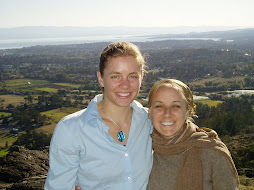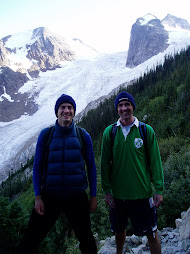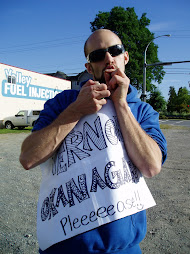
"The only zen you find on the tops of mountains, is the zen you bring up there." Robert M. Pirsig
I had reservations about embarking on the journey of the Anapurna mountains from the time I said GO. The universe certainly had a way of asking me to question just how much I really wanted this experience. Many obstacles were placed in my way, such as losing a notebook with all my trekking and guide information, hiring a guide that didn't show up and getting the run around with the Nepali's unofficial system of providing "porters" off the street with no training etc. Regardless of all of this, I was determined to go, so I finally found a porter through a reputable company and together we set off on the Anapurna Sanctuary trek.
Unfortunately arriving in the mountains wasn't an immediate breath of fresh air as I was facing a power struggle between stubborn, infamous, singing guide and strong, determined, female traveller. My decision to choose my own guesthouse against his suggestion on the first evening, was enough to send him into a rage with threats to leave if he didn't get his own way... Needless to say, the following days to come were difficult. The struggle between self respect and keeping the peace became a challenging one, but I didn't want to allow our conflict to ruin my experience.
The journey to ABC began to feel like a meditation, a cleanse, release of toxins. Every step requiring my undivided attention and awareness. Despite the physical challenge and the difficulty with my guide, I felt that I was being tested and challenged to see the beauty in my surroundings and be thankful for every step along this path. Perhaps I was attached to the idea that maybe I'd find the peace and serenity I was looking for at the top of the mountain, but with each breath of resistance, I would only become closer and closer to finding the same misery that I'd carried with me along with my hiking boots and body wash.
On my third night, I met a group of travellers from all over the world and things began to look up. The following day we all arrived one by one at our destination and gathered at the same guesthouse in the ABC at 4100 metres 13,450 feet. I wanted to go higher as I'd heard that you can prevent altitude sickness if you hike 200 metres higher than you sleep, so I was determined to make it to the snow line of the mountain. I pointed to the desired destination and Alex, our English group member, said it would take me two hours to reach that point. I insisted it would only take a half hour and he said that if I could do it in 30 minutes, he'd buy me a Dal Bhat for dinner. "Deal" I replied as I ran towards the snow line.
Perhaps it was slightly irresponsible of me to take this bet, due to my asthma and aching limbs. The severity of the altitude hit be about half way up and caught a glimpse of the deep canyon that lay directly below the narrow ridge I was climbing. I stopped to breathe at ten minutes, fiften, twenty, then I made a run for it and i arrived in exactly 23 minutes. Once I caught my breath I stood on the ledge and screamed a sound of success. Down below, my friends sighed with relief that I was alive as they had lost sight of me ten minutes previous. After my scream, a stream of emotions filled my body and for a million reasons... I cried. It was a much needed release of emotion which signified my pride of being able to do what I've often been told that I was limited in my ability to accomplish, due to my asthma. I also realised that I had accomplished my primary goal, which I had set before coming to Nepal. It has become quite clear to me however, that coming to Nepal to trek, has very little to do with trekking itself. The Dal Bhat, by the way, tasted great, even though I haven't mastered the art of eating it with my hands yet.
The following morning, basking in the glory of reaching my destination, I felt elated. That feeling was soon replaced with shock as I realised that my porter had decided to leave the highest point of the mountain, the most desolate and rural place I'd ever been on earth... without me. I searched high and low but I knew in my gut that he'd left. Someone said it was beceause he'd been drinking, another claimed he was crazy, either way I was without one drunken or dilusional porter to carry my 12 kilo bag for the remaining three days of my trek. I thought to myself, following the wise words of my former YWCA supervisor, Kim, "If this is the worst thing that happens to you today, you're doing pretty good." After all, I was feeling incredibly healthy, happy and I had many people around to help, it definitely could have been much worse.
Fortunately I was offered a hand by a kind Polish guy named Piotr, who noticed me in tears of frustration as I mournfully tried to carry my combersome burden. He took part of my load and we set off to reach our destination, which was 7 hours away. The first day of carrying my stuff wasn't so bad, although it made me seriously contemplate travelling lighter and sending my bag over the cliff a few times. The following day, however, I realized what we would be up against, stairs going straight down, then up 500 metres and a mountain that would show no mercy. I needed help so I prayed for a porter, returning from unloading his burden in the hills. Two men arrived shortly after and said they couldn't help but they quickly exchanged some words with an old man who was carrying an enormous load, surely equalling over 30 kilos. He looked at me and said "put your bag on top." Piotr and I looked at eachother in shock. I replied "No way, you're carrying too much already!" He insisted saying that it would be no problem and added that he would appreciate the extra money to help feed his family. Some people say that Nepali porters are super-human. These men are the skinniest but strongest men I've ever met, carrying up to 100 kilos in one go, hopping over rivers, trodding up stairs, running over rocks and all in their flip flops. Needless to say, we made it to our destination, and we were huffing and puffing more than our porter.
It was tough to find a porter the following day as it was depawali festival where brothers rush home to receive their "tikkas", a blessing from their sisters. I'm pretty sure the dogs and cows didnt sign up for participation in this festival though but they too receive tikkas on their heads, displaying their colourful brands with lack of amusement. We finally managed to find a porter at a guest house in New Bridge, the teenage son of the owner. So 13 year old Deepak and 15 year old Subash became our young porter/guides, quickly and carefully guiding us to the end of the trail. Deepak's English was pretty good. He talked about the sports he liked to play and I taught him how to sing "I like to eat, eat, eat apples and bananas!" He explained that they went to school in Gandruk, 2 hours away from New Bridge, and they walk for two hours, rain, snow, sickness etc. up hill... both ways. I enjoyed their company immensely and was sad to say goodbye at the end of the day, but happy to make it back to Pokhara safely, with only a few bruises and aching limbs as souvenirs of my experience.
I had to deal with the trekking company the following day and it was difficult. Eventually I had to go above them to the Trekking Agency Association of Nepal to get most of my money back. I agreed to leave half of it anyway for Subash to pay for his food etc. Besides, the president of the company said that he would have to accept responsibility for what he'd done and apologize in order to receive his pay. I felt that this was very reasonable and I was happy to put all of this behind me.
And so the chapter of submersing myself in the busy tourist circuit of Nepal, despite my reservations, came to a close. It was surely a test which has strengthened both the trust in my intuition and the muscles in my legs. The next chapter involves a journey into the great depths of my being in meditation for the next month. Perhaps it will prove to be an even crazier journey than the one I just completed.
To see photos click on: http://picasaweb.google.com/KusumaTiffany/ZenAndTheArtOfEatingANepaliDalBhat#







